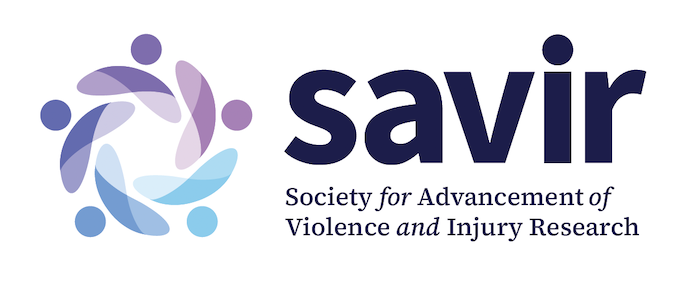Sep 11 2024
/
Arizona State University: Office of the University Provost Tempe: The College of Liberal Arts and Sciences: T. Denny Sanford School of Social and Family Dynamics
Location: Tempe, campus
Open Date: Sep 06, 2024
Weblink to apply: ASU posting
Description
The Center for the Study of Guns in Society (CSGS) housed within the T. Denny Sanford School of Social and Family Dynamics (SSFD) at Arizona State University (ASU) invites applications for a postdoctoral research scholar with interest in guns in society, broadly defined. The successful candidate will work with Prof. Jennifer Carlson in CSGS. The anticipated start date is January 1, 2025, with potential flexibility. This is a 12-month, benefits-eligible, in-person position that is renewable for up to three years upon successful demonstration of academic productivity. The salary is commensurate with experience.
Applications are encouraged from individuals who are interested in a position combining grant development, independent and collaborative research, data infrastructure management, programming/event coordination, and public outreach. The postdoc should bring (1) research experience related to guns in society; (2) demonstrated training in qualitative methods; (3) strong conceptualization and writing skills; (4) stellar organizational skills; (5) experience working in research teams; and (6) an interest in building a collaborative environment centered on gun studies.
Research experience on guns may include (but is not limited to) the culture and politics of armed self-defense; gun violence and gun trauma; guns, identity, and inequality; police use of guns and/or the policing of guns; gun markets, the gun industry, and gun trade; social movement mobilization surrounding gun rights and/or gun control; comparative/transnational approaches to guns in society; the intersection of guns, conservation, and environmental justice; and related topics grounded in social science approaches. Especially welcomed are approaches oriented toward bridging divides within the gun debate, unearthing new opportunities for conversation, and (re)framing the terms of the gun debate in ways that serve the interests of the broader public, especially in Arizona. Note that this is an opportunity to play a pivotal role in developing a center uniquely focused on social science approaches to guns in a state with a dynamic and trend-setting terrain with respect to guns in society.
Inquiries can be directed to Dr. Jennifer Carlson at jenniferdawncarlson@asu.edu
About the Center for the Study of Guns in Society
CSGS is a new center at ASU that engages the topic of guns in society by drawing on the methodological and analytical expertise in the social sciences and adjacent disciplinary and interdisciplinary spaces. CSGS’s mission includes building data infrastructure necessary for more productive civic engagement surrounding guns in society; engaging multicultural and underappreciated voices across the gun debate; and building scholarly community within the area of gun studies, including mentorship opportunities for scholars at all career stages. Key CSGS activities include the Guns Unpacked podcast, the BRIDGS Emergent Scholar Fellowship, the Annual Symposium, as well as the American Gun Experience, a longitudinal, qualitative study of gun attitudes in the US. Drawing on ASU’s charter of inclusivity, public values and community impact, CSGS imagines a different kind of space for the gun debate, one that brings rigorous and thoughtful data and evidence to understand where we are in the gun debate and where we might go next. See csgs.asu.edu for more details.
About The College of Liberal Arts and Sciences
The College of Liberal Arts and Sciences is the academic heart of Arizona State University, committed to improving communities on a local, national and global scale. We support the professional development and growth of our faculty and staff in their cutting-edge research to advance these aims. Within The College, our faculty engage with a large and curious student body, guiding them as they grow into socially aware, critical thinkers and writers able to succeed in a wide range of careers and to address the challenges of the twenty-first century. Advancing the success of our students remains our top priority. To learn more about The College of Liberal Arts and Sciences, please visit https://thecollege.asu.edu.
About Arizona State University
ASU exemplifies a new prototype for the American public research university. As articulated in the ASU Charter, ASU is a comprehensive public research university, measured not by whom it excludes, but by whom it includes and how they succeed; advancing research and discovery of public value; and assuming fundamental responsibility for the economic, social, cultural and overall health of the communities it serves.
Qualifications
Required Qualifications:
- Doctorate in sociology, political science, criminology, anthropology, linguistics, economics, communications, psychology, history or related field by the effective date of appointment start date.
- Demonstrated background/interests in social science approaches to guns, broadly defined.
- Demonstrated experience with analytic skills in qualitative methods, including familiarity with data analysis software as appropriate.
- Evidence of independent scholarship and team collaborations, strong interpersonal communication skills, and outstanding academic writing skills
Desired Qualifications:
- Experience with collaborative grant-writing and team-based research
- Prior first-author publication experience at peer-reviewed journals
- Experience with programming/event coordination
- Demonstrated experience with outreach (such as with media, policymakers or the interested public)
- Willingness to learn skills related to outreach/programming activities
- Demonstrated commitment to working with faculty, staff, students, and communities to advancing the ASU Charter.
Application Instructions
The application deadline is October 6, 2024. Applications will continue to be accepted on a rolling basis for a reserve pool. Applications in the reserve pool may then be reviewed in the order in which they were received until the position is filled. Candidates will be asked to create or use an existing Interfolio Dossier to submit the following application materials:
1. Current Curriculum Vitae
2. A cover letter including:
(1) your research interests,
(2) previous training and experience in research on relevant substantive topics,
(3) competence and experiences in the minimum/desired qualifications
3. Name and contact information of three references
4. Two representative publications
